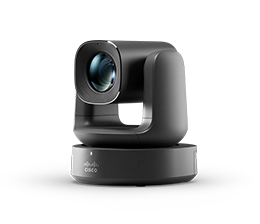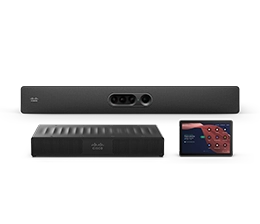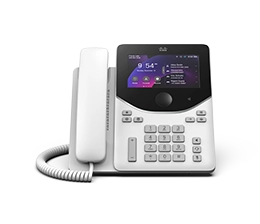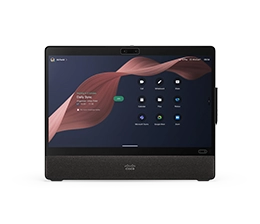When customers call a contact center, their first interaction is often with an automated system that gathers information and routes the call appropriately. This technology is known as an Interactive Voice Response system—or IVR.
In this blog, we’ll break down what IVR is, how it works, the benefits it provides, and how to choose the right solution for your business.
What is an IVR system and how does it work?
IVR is an automated telephony system that interacts with callers, gathers information, and routes calls to the appropriate recipient or department without human intervention. IVR systems often use pre-recorded voice prompts and menu options to guide callers through the process. Emerging versions increasingly use artificial intelligence (AI) to improve the traditional IVR experience.
In contact centers, IVR systems serve several purposes. These include:
- Call routing: IVR systems can route incoming calls to the department or agent suited best to serve the caller. For example, an IVR system may prompt callers to select from a menu of options (e.g., "Press 1 for sales, Press 2 for support") to direct their call to the right destination. An IVR system can do this quicker and more efficiently than the typical human agent.
- Information gathering: IVR systems can collect information from callers before connecting them to an agent, reducing the need for agents to gather basic information manually. An IVR system may ask callers to enter their account number, phone number, or reason for calling. In an era when data is more valuable than ever, this is a key component of IVR. Furthermore, a solution that incorporates AI can provide valuable insights into all this data.
- Queue management: IVR systems can inform callers about their position in the queue and estimated wait times. This helps manage caller expectations and reduces frustration by providing transparency about how long the caller can expect to wait.
- Self-service options: IVR systems enable self-service options for callers who prefer to resolve their inquiries without speaking to an agent. Callers can perform tasks such as changing account settings, updating personal information, or requesting support documentation through IVR menus.
- Call deflection: IVR systems can deflect calls away from live agents by providing relevant information or troubleshooting steps to resolve common issues. This reduces call volume and frees up agents to handle more complex inquiries.
The benefits of a top-notch IVR system
You may have heard people complain about having to interact with IVR technology—or maybe you have complained—when calling a company for customer service. However, IVR offers many benefits to both businesses and customers alike. In fact, it’s becoming increasingly difficult to manage a contact center even of modest size without an effective IVR system.
IVR can perform many functions far more quickly and efficiently than human agents. IVR offers great cost-efficiencies and even improves the customer experience (CX). Some key IVR benefits include:
- 24/7 accessibility: IVR systems enable contact centers to provide around-the-clock access to automated services and information, allowing customers to perform tasks or get help outside regular business hours. This enhances convenience for customers and reduces dependency on live agent availability. To offer this kind of customer accessibility without IVR, an organization would have to employ agents in multiple time zones and/or pay them for shift work and holiday hours.
- Reduced call volume: By offering self-service options and automated assistance for common inquiries, IVR systems can deflect calls away from live agents. This reduces call volume and frees up agents to handle more complex or high-priority inquiries. This increases operational efficiency and reduces wait times for callers.
- Enhanced CX: IVR systems provide a streamlined and consistent interaction experience for callers by guiding them through menus and options to address their needs. By offering prompt help, IVR systems contribute to a positive overall customer experience and help build customer loyalty. Callers who need to make repeated requests often learn to navigate the IVR system quickly, knowing which buttons to push or responses to give to reach the department or information they want. Such IVR interactions are significantly faster than waiting for a live agent to speak with, only for that agent to relay the customer to someone else.
- Data collection and analysis: IVR systems can gather valuable data about caller interactions, including call volumes, service usage patterns, and caller preferences. Contact centers can analyze this data to identify trends, which helps them forecast periods with high call volumes and prepare accordingly. Call centers can also use this data to optimize their IVR menus and improve overall service quality and efficiency.
How does AI enhance IVR systems?
IVR technology isn’t new; organizations have used it for decades. However, it’s one of many technologies that AI is set to transform. In fact, AI has already made a huge difference in how companies implement and benefit from their IVR. AI can improve these systems with processes such as:
- Natural Language Processing (NLP): AI-powered IVR systems can understand and process natural language inputs from callers. This allows for more conversational IVR interactions, where callers can speak naturally instead of navigating through rigid menu options. Ten years ago, callers may have felt it necessary to yell carefully enunciated one-word responses for an IVR system to understand them. Thanks to NLP, this kind of stilted and unnatural speech isn’t necessary for interacting with IVR.
- Speech recognition: AI enables IVR systems to transcribe and interpret spoken language with a high level of accuracy. This allows callers to interact with the system using voice commands. Advanced speech recognition technology ensures that IVR systems can understand diverse accents and dialects, improving accessibility for users. Many callers find this type of interaction more convenient than having to push a button to respond, especially given the ubiquity of cell phones with touch screens.
- Integration with backend systems: AI-powered IVR systems can integrate seamlessly with backend systems such as customer relationship management (CRM) databases, knowledge bases, and ticketing systems. This integration enables IVR systems to access relevant information in real-time, providing accurate and up-to-date assistance to callers without human intervention. By leveraging the information in a CRM database, an organization can both serve customers more efficiently and provide them with more relevant responses.
Choosing an IVR service provider
You don’t have to be a multinational company to benefit from an IVR system. If your organization employs only a handful of call center agents, an IVR system can make their jobs easier, help them be more efficient, and improve the customer experience for those calling your business. However, it’s critical to choose the right IVR service provider.
Not all IVR systems are the same. A system that works well for one company’s call center may not be a great option for another. And some IVR systems are simply better than others, offering more features and adaptability.
You want to choose a modern IVR system that meets your current needs and one that can provide the features and advantages your organization might require in the future. It’s imperative to have an IVR system that will grow with your business and one you can customize to the needs of your contact center.
Many companies sign up with an IVR service provider without auditing the needs of their contact center or fully understanding what they require. This often leads to a sub-optimal IVR solution, or at least a flawed implementation of the system. Before choosing the best IVR software or contact center solution for your business, you should define a few things. These include:
- Your current requirements: What are your business objectives and operational requirements? Consider factors such as the volume of incoming calls, the types of inquiries you receive, what features you want for your IVR system, and what functionalities you can’t go without.
- Integration: Another key factor is integration. What, if any, systems your contact center currently uses do you want to integrate your IVR with? Integration with existing systems is a key consideration that some organizations overlook. The result can be a great IVR solution that the company misuses or underutilizes because there’s too much friction with the other systems its call center relies on.
- Your future requirements: You probably want your business to grow. If your business grows, your contact center will probably also have to grow. When it does, what will your needs be then? What volume of calls do you expect to have in five years? How might your customer inquiries change in the near future? How might your organization adapt to keep up with the demand of customers and changes in the customer experience? These are valuable questions to ask yourself before investing in an IVR system.
- Your relationship with AI: AI is changing how many solutions, services, businesses, and entire industries operate. As we’ve seen, AI has already had a big impact on IVR systems and contact centers. How much has your organization adapted to these changes and how much do you use AI to your advantage? This is an area where it’s key to consider both the current needs of your contact center and its future needs. It’s valuable to work with an IVR service provider who already leverages AI to improve its IVR software and can help you understand how to implement new AI features as they develop.
Elevating IVR with AI: the role of Webex AI Agent and AI Assistant.
Modern IVR systems are no longer limited to static menu options; they are evolving into intelligent, conversational interfaces. Webex enhances this evolution with two AI-driven tools: Webex AI Agent and Webex AI Assistant.
Webex AI Agent: transforming self-service interactions.
Webex AI Agent integrates seamlessly with IVR systems to provide natural, conversational experiences. Utilizing technologies like Natural Language Processing (NLP) and Automated Speech Recognition (ASR), it understands caller intent and delivers personalized responses. This capability allows customers to resolve issues efficiently without human intervention, reducing call volumes and wait times.
Webex AI Assistant: empowering human agents.
When complex issues require human attention, Webex AI Assistant supports agents by providing real-time insights, context, and summaries of prior interactions. Features like AI-generated conversation summaries and suggested responses enable agents to assist customers more effectively, enhancing the overall customer experience.
By integrating these AI tools, businesses can elevate their IVR systems from basic call-routing mechanisms to sophisticated, responsive platforms that enhance customer satisfaction and operational efficiency.
How Webex Contact Center can streamline your contact center operation.
Webex Contact Center is a valuable tool for any organization with a contact center. Our solution can help you master interactive voice response, delivering all the features you need to provide excellent customer support while minimizing costs. Webex Contact Center offers benefits such as:
- AI-powered CX: With our platform, you can leverage AI to drive and connect all customer engagement, from automated digital messaging to self-service and customer interaction. Apart from powering your smart IVR service, you can also use AI features to gain valuable insights from your contact center-related data. Understand the journey of and data behind each caller, helping you deliver the best customer experience now and in the future.
- Visual IVR: Webex Contact Center offers Callvu Visual IVR to help you divert more support calls to visual self-service experiences that resolve customers quickly without relying on agents.
- Omnichannel support: Webex Contact Center is more than an IVR solution. Apart from greeting and sorting callers with advanced IVR, you can service customers properly no matter how they wish to contact your company. By enabling customers to communicate in their channel of choice, such as phone, text, email, chat, or social messaging, you make it easier for customers and potential customers to interact with your business. This can improve the customer experience, giving you the best chance at maximizing customer loyalty and retention.
- Streamline operations: With an AI-driven personal concierge, you can provide intelligent, conversational AI self-service to resolve issues quickly. Callers won’t need to wait for a human agent to start to address their reason for calling. You can also save time by freeing up agents with AI-generated conversation summaries and transcripts.
- Simplify operations: Webex offers your organization one proven vendor to trust. With one platform to manage and one experience to connect with customers and colleagues, you can simplify operations for your agents and provide a universally smooth customer experience.
- Security, flexibility, and scalability: Your contact center can rely on Webex–a secure, open, and flexible platform that you can integrate with all your existing systems. Our solution is also scalable, so you can always meet your ever-changing business needs.
- Enjoy a strong return on your investment: The right IVR software and contact center solution can’t only improve customer relations, but also investor relations by offering a remarkable return on investment (ROI). Forrester Consulting conducted a Total Economic Impact™ (TEI) study to figure out the cost savings and business benefits enabled by Webex Contact Center. Based on a composite organization, their study found that Webex Contact Center delivered a remarkable 304% ROI and improved contact center operations over a three-year period.
With helpful tools such as IVR prompts, conversational AI, voice recognition, and other IVR features, you can make your contact center operations more efficient and boost customer satisfaction. Webex can take your contact center to the next level with best-in-class IVR technology. Learn more about Webex Contact Center and how it can enhance experiences for both your customers and contact center agents.







